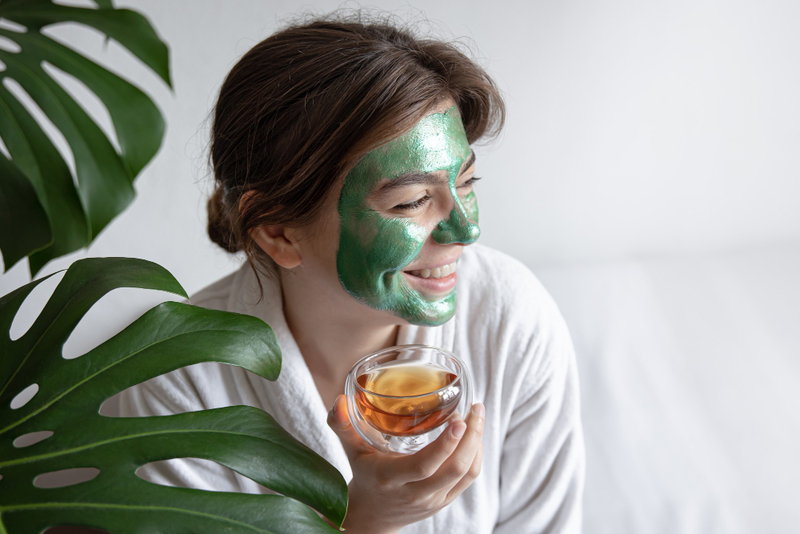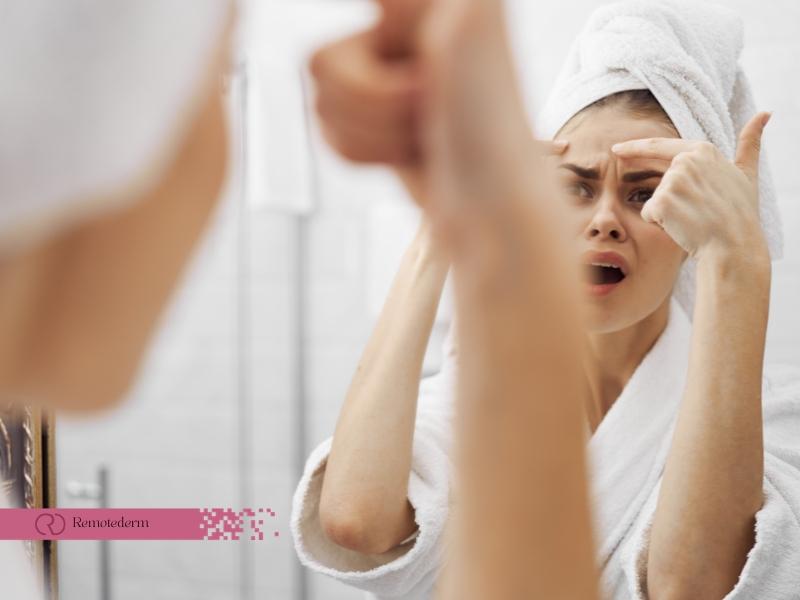Stress is an inevitable part of our lives, and its effects can manifest in various ways, including on our skin. One common issue many individuals in Canada face is stress acne. In this comprehensive guide, we will delve into the world of stress-related skin concerns, exploring the connection between stress and acne, understanding the causes, and discovering effective strategies to bid farewell to stress acne for good.
The Link Between Stress and Acne
Before diving into solutions, it’s crucial to understand the correlation between stress and acne. Numerous studies have indicated that heightened stress levels can contribute to the development of acne. When we are stressed, our bodies produce more cortisol, a hormone that triggers an increase in oil production in the skin. Dead skin cells and excess oil create an ideal environment for acne-causing bacteria to grow.
Can Stress Cause Acne?
The question on everyone’s mind: can stress cause acne? Dermatologists say the answer is unquestionably yes. While stress alone may not be the sole culprit, it can exacerbate existing skin conditions and act as a catalyst for acne flare-ups. Understanding this connection is crucial in developing effective strategies for managing stress acne.
Strategies for Tackling Stress-Induced Acne
When life’s pressures mount, our skin often bears the brunt. Stress-induced acne is a common manifestation of our body’s response to prolonged tension and anxiety. By understanding its triggers and characteristics, we can devise effective strategies to combat it and maintain a clear, healthy complexion.
Identifying Stress Acne vs Hormonal Acne
Distinguishing between stress acne and hormonal acne is essential for targeted treatment. Stress acne typically appears as small, red pimples on the forehead, cheeks, and chin, often emerging during periods of high pressure or lack of sleep. Hormonal acne, in contrast, is usually linked to hormonal changes, such as those occurring during puberty, menstrual cycles, or menopause, and can be more resistant to over-the-counter treatments. There is also a difference in their textures, with stress acne feeling sore and appearing more inflamed due to the body’s cortisol response. Knowing the difference allows for a more accurate approach to skincare and can prevent exacerbating the condition with inappropriate products.
Establishing a Skincare Routine
Crafting a tailored skincare routine is paramount in the battle against stress acne. Dermatologists recommend gentle cleansers containing salicylic acid or benzoyl peroxide to unclog pores and reduce inflammation. Incorporating a non-comedogenic moisturizer helps maintain hydration without aggravating acne-prone areas while integrating a daily sunscreen can protect sensitive skin from further stress induced by UV exposure. For many, a consistent evening skincare routine can also serve as a relaxing ritual that not only benefits the skin but also helps alleviate stress before bedtime, addressing one of the potential culprits behind the acne.

Professional Guidance and Treatment Options
For those grappling with stubborn or severe stress-induced acne, it’s prudent to consider an online consultation with a dermatologist. These skilled professionals can discern if your breakouts are spurred by stress or other factors such as hormonal imbalances or bacterial infections. With the convenience of telehealth services, dermatologists can prescribe effective treatments remotely, which might include topical retinoids, and oral antibiotics for more severe cases, or suggest specific over-the-counter products. They can also guide you regarding in-office procedures like chemical peels and light therapy if necessary. Access to online acne prescriptions in Canada not only simplifies the treatment process but ensures that you receive a customized and potent regimen to tackle your skin concerns from the comfort of your home, coupled with advice on stress management techniques for holistic care.
How to Get Rid of Stress Acne – Practical Steps
Battling stress acne can be as much about your lifestyle choices as it is about your skincare regimen. In this section, we will explore some practical and manageable steps that can be seamlessly integrated into your daily routine to help soothe your skin and keep stress acne at bay:
- Practice Stress-Reducing Techniques:
Incorporating activities such as yoga, meditation, or deep breathing exercises can significantly lower stress levels and, subsequently, reduce the likelihood of stress acne. Engaging in these practices can help regulate the hormones that trigger oil production in the skin, leading to clearer skin. Moreover, setting aside time for these activities can provide a sense of balance and well-being that combats the toll stress takes on the body. - Prioritize Adequate Sleep:
Lack of sleep not only contributes to heightened stress but also impairs the skin’s ability to heal. Aim for 7-9 hours of quality sleep each night to promote skin rejuvenation and give your skin a chance to repair itself from daily stressors. Also, consider adopting a soothing bedtime routine to improve your sleep quality, including lowering screen time and creating a restful environment. - Balanced Diet:
Nutrient-rich foods play a pivotal role in skin health. Opt for a diet rich in fruits, vegetables, and whole grains, while minimizing processed and sugary foods that can exacerbate acne. Foods high in antioxidants and omega-3 fatty acids have been shown to reduce inflammation, which can help improve the appearance of stress acne. - Stay Hydrated:
Sufficient hydration is critical for the elasticity of the skin and general health. Drinking an adequate amount of water helps flush out toxins that can lead to inflammation and acne outbreaks. It’s generally recommended to drink at least eight 8-ounce glasses of water per day, although individual needs may vary based on factors like activity level and climate.

Final Thoughts
Coping with Stress Acne in Canada is a journey not just of skincare but of holistic wellness. Armed with the right knowledge and tools, you can navigate the challenges of stress-related skin concerns. Remember that the body’s largest organ often reflects our internal health, and by managing stress, prioritizing restorative sleep, nourishing the body with a balanced diet, and maintaining hydration, you set the stage for not just acne-free skin but a healthier, more balanced life. While there’s no one-size-fits-all remedy, consistency in your personalized skincare and wellness routines can make a substantial difference. Always consult with a dermatologist for stubborn or worrying cases, and let your journey to clear skin be a conscious act of self-care and an ongoing commitment to managing stress in all its forms.
FAQs
1. Can makeup worsen stress acne?
Yes, certain makeup products can exacerbate stress acne, especially if they are oil-based or comedogenic, which can block pores. It’s essential to use non-comedogenic makeup products and ensure thorough cleansing to remove makeup at the end of the day.
2. Is it possible to treat stress acne with over-the-counter products alone?
Over-the-counter products can be effective in treating mild stress acne by using formulations with ingredients like salicylic acid or benzoyl peroxide. However, more severe cases may require the attention of a dermatologist and possibly prescription medication.
3. How does exercise impact stress acne?
Regular exercise can help mitigate stress acne by reducing stress hormones in the body and improving blood circulation, which can help to nourish skin cells. However, it’s important to cleanse the skin properly after sweating to prevent pores from becoming clogged.
4. Can changes in the weather affect stress acne?
Yes, changes in the weather, such as increased humidity or dry conditions, can affect stress acne. High humidity can lead to sweat and oil buildup that may clog pores, while dry conditions can cause the skin to produce more oil to compensate for moisture loss, both potentially worsening stress acne.
